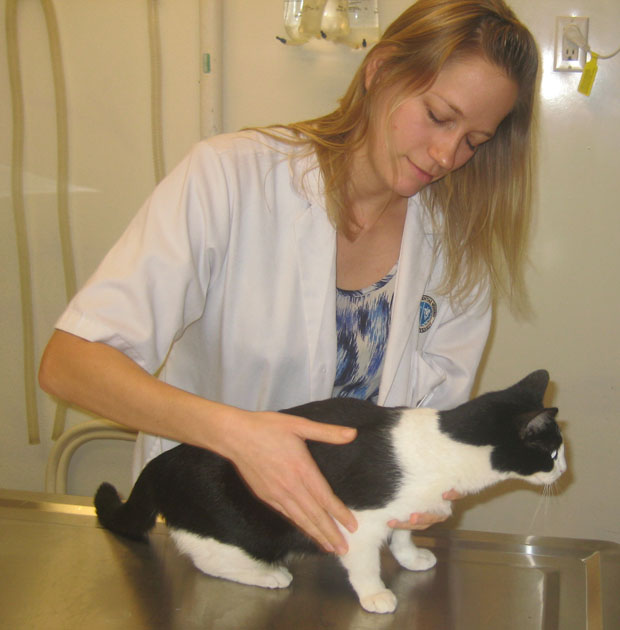
Cats are experts at hiding illness, which causes problems for both owners and veterinarians alike. Longhaired cats can especially conceal underlying problems, and it can distinguish which pet has a disease in multiple-cat households.
Here are some of the more common diseases and symptoms to watch for:
- Chronic kidney disease
- High thyroid
- Heart disease
- Cancer
- Intestinal inflammation
- Sugar diabetes
- Dental diseases that rot teeth
Symptoms of these diseases include:
- Weight loss
Weigh your cat periodically with a baby scale. This is especially important in longhair cats. - Poor appetite
Measure how much food you feed and how much is eaten. - Lethargy
This may be present if the cat lies around more than usual, doesn’t out the window or play as much, or excessively wants to be petted. - Drinking more than usual
Monitor how much water you put in the bowl. - Urinating more than usual
Check the litter pan for more moisture than normal. - Breathing faster than usual
This can be subtle, so monitor the breathing rate at the end of the day when all is calm. Anything over 30 breaths per minute is a potential problem. More importantly, look for a trend of an increasing respiratory rate over several days or weeks. - Diarrhea
Usually easily noted in the litter pan - Hiding
not only when visitors are around - Bad breath
Put your face near your cat’s mouth as it breathes and check for odor.
Some diseases can be well entrenched in the cat even if you note these symptoms as soon as they start. If your cat consistently shows any of these problems, it is imperative you bring it in for an exam as soon as possible.
Our website has a detailed Disease Section on many cat diseases, including the seven listed above. There’s also a section showing you how to examine your cat at home.

